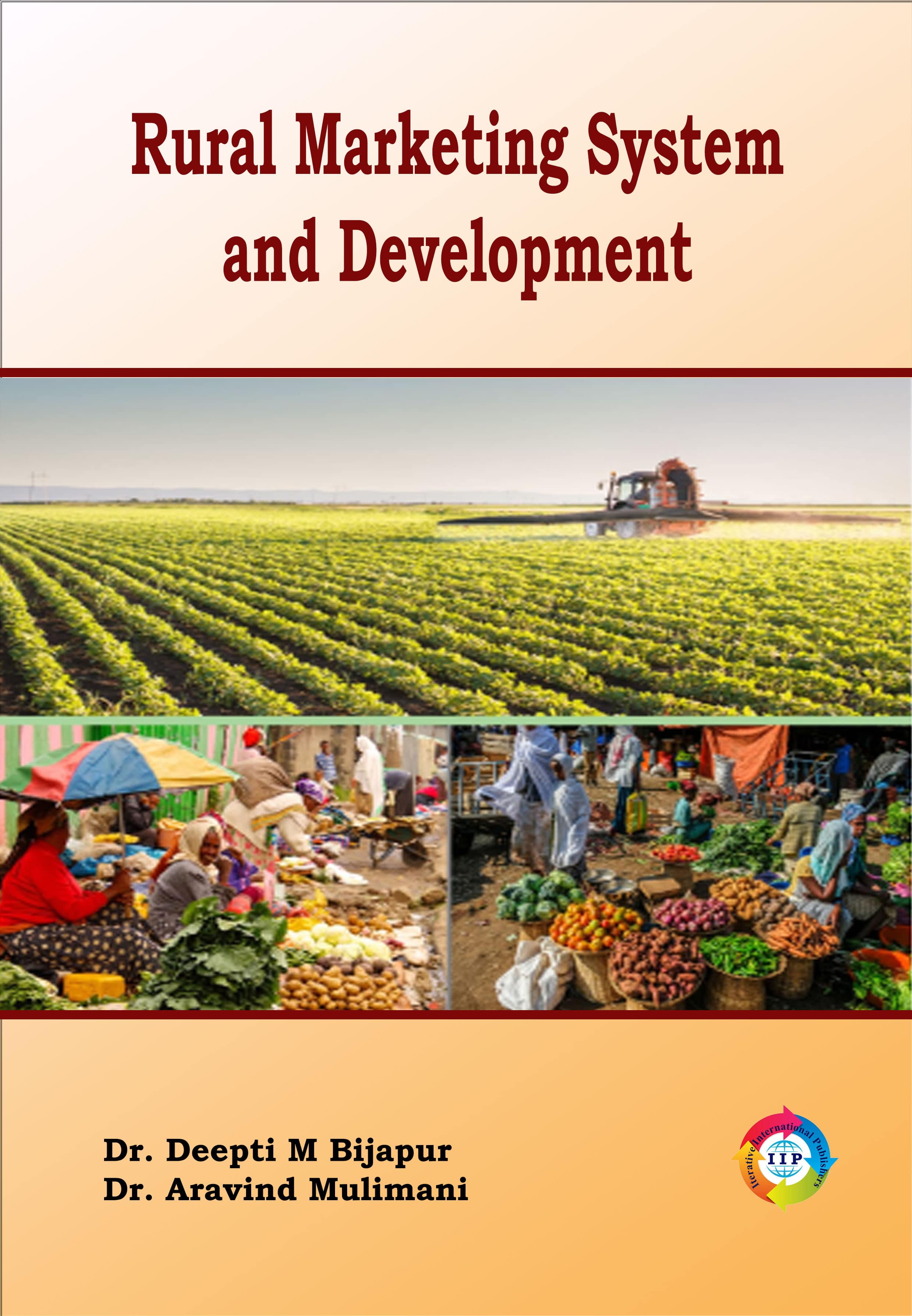
RURAL MARKETING SYSTEM AND DEVELOPMENT
-
TypePrint
- CategoryAcademic
- Sub CategoryPhD Thesis/Thesis
- StreamManagement
Marketing Geography has a distinct branch of Geography in a broader perspective of Economic Geography and fastest growing in the discipline. It is gaining much significance not only to deals with economic activities but also to deals with locational aspects, the physico-cultural, Politico-religious, socio- economic characteristics of any geographical regions in the world.
Marketing Geography has much relevance in the present day, mainly due to transacting the agricultural goods and services in an effective manner and providing an employment opportunity to the society. As a result, it is widely attracted by the marketing geographers in particular and academicians, planners, policy makers and administrators in general. Therefore, it has significance in the modern economy with multi-dimensional approach related to other branches of Geography. In view of this, it is more related to Transport Geography, Agriculture Geography, Industrial Geography, Rural and Urban Geography, Manufacturing Geography, Population Geography and Regional Geography etc. The effective linkages between the interrelated branches established by the marketing activities and emerged as the nutshell of marketing geography. As a result, Markets are magnate to attract the marketing activities not only from the hinterland but also from other than the hinterland to perform their functions effectively.
The authors have attempted to arrange the carried-out work in a sequential manner and accordingly designed in to five chapters. The first chapter is an introductory, which deals with the brief introduction part, concept of market and market place; Marketing is a geographic phenomenon, periodic market, and concept of hierarchy, Periodicity and regulated market, significance of Marketing Geography, integration of marketing Geography related to other branches. The review of literature, the selection of study area, the justification of a problem, objectives, hypothesis, data base, methodology, limitation of the investigation and research design have been discussed in an effective manner.
In the second chapter, confined to highlight the personality of the study area and put in the form of Geo-view. The physical characteristics has been discussed along with the locational and extent. The topography and relief, geology, drainage, climate, rainfall, temperature, natural vegetation and soil etc has been discussed in brief. The demographical profile deals with the distribution and density of population, literacy, sex ratio and education and health are discussed under demographical characteristics of the study area. In the economic characteristics, the land utilization, intensity, land use, land efficiency, cropping pattern, irrigation, livestock resources, industries, banking, transport and communication and energy situation of the study region has been focused. The rural settlements, density of villages and spacing of villages of the region have been delt in.
The third chapter is related to deal with historical background of origin and evolutionary process of markets is more effective base for further process. The orthodox and unorthodox theories have discussed in the lights of markets and accordingly delt with. The emergences of and regulated markets, fairs and festivals are also discussed. The authors have paid more attention to study the Spatio-Temporal distribution of periodic markets, locational characteristics, taxonomy of periodic markets, spatial pattern of markets, market periodicity and market synchronization.
Functions of Periodic Markets, market mechanism, consumer behavior, traders travel pattern and area of influence has been discussed to determine the hierarchy of the markets accordingly determined and discussed. The concept hierarchy of market centers has been discussed based on the selected parameters and discussed the concept of hierarchy, the hierarchical order of markets is determined on the basis of the Christaller’s Central Places Theory and discussed in the fourth chapter.
The last chapter is concluding chapter, which has been discussed the jist of all the chapter in the form of conclusions. The outcome of the entire investigation has been concluded in the form of findings planning strategy, observations and suggestions for the further development of the markets in a region. Therefore, the entire endeavor of the work has set the good guidelines for the marketing geographers to enhance the horizon of the knowledge in the discipline with a view to understand the rural development.
The work is an outcome from the inspirations and valuable guidance with encouragement of our beloved teachers Dr S.I. Hugar, Former Professor and Chairman Department of Geography, Karnatak University Dharwad for highly grateful. It is our proud privilege and great honor to express my deep sense of gratitude to Dr R.S.Dixit, to take up the research in the field of Marketing Geography. Our thanks are also our colleagues and friends for their support and encouragement extended all through. We are highly grateful to family members of Dr (smt) Deepti M Bijapur and Dr Aravind Mulimani family & friends for the constant cooperation extended to us otherwise this book would not come out. We are never forgetting blessings of the Pariwar of Shakth Peetha Hubli. We have a word of apresission for the service extend to in completing the book by INSC International Publishers & Printer Chikkmagalur, Karnataka, India.
**Note: IIP Store is the best place to buy books published by Iterative International Publishers. Price at IIP Store is always less than Amazon, Amazon Kindle, and Flipkart.





COMMENTS
No Review found for book with Book title. RURAL MARKETING SYSTEM AND DEVELOPMENT